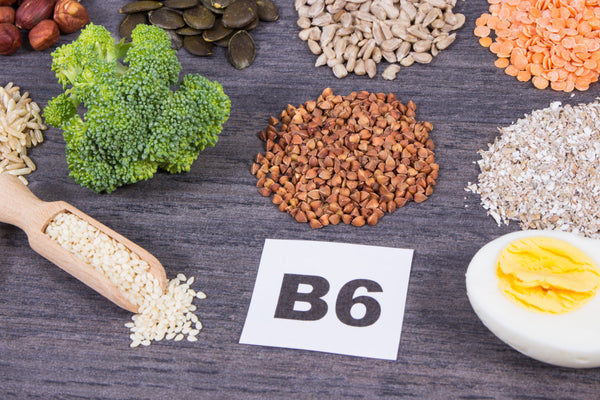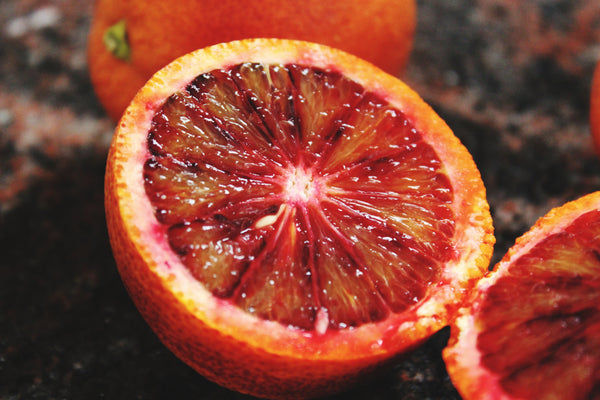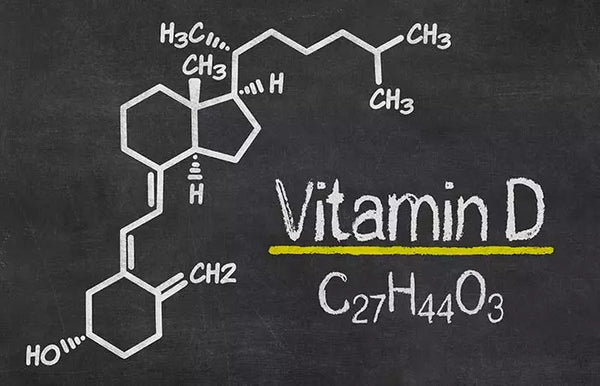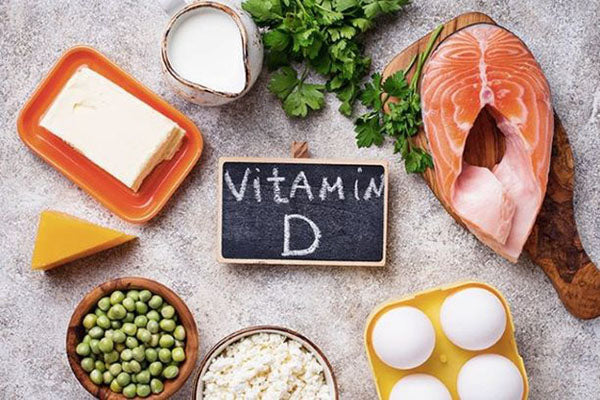
7 Vitamins for Stunted Children, Let's Fulfill Their Needs!

Stunting is a condition of stunted growth due to chronic or recurrent malnutrition while still in the womb and in childhood.
Maybe you realize that the Little One does not grow to the height of a child their age, but don't rush to the conclusion that the Little One is stunted, because height can be influenced by various factors, especially if you have tried to meet the nutritional needs your kids by eating healthy and balanced foods.
Vitamins for Stunted Children
If the child has gone through an expert examination and is diagnosed with stunting, you can ask for recommendations for supplements and vitamins for stunted children accordingly.
The following are some mineral and vitamin supplements for stunted children.
1. Vitamin A
Read: This is the Impact of vitamin A Deficiency and How to Prevent It
Giving vitamins to stunted children can be started by re-examining the adequacy of vitamin A in your child.
Since the body cannot produce vitamin A, the intake of this vitamin comes from food or supplements.
The role of vitamin A in the growth of children is of them, namely:
- Maintains healthy teeth, bones, and soft tissues.
- Maintains the structurality of all surface tissues, such as the skin, in order to combat infections and aid wound healing.
- Supports vision function and eye health.
- Due to its antioxidant properties, vitamin A maintains the immune system and protects the body from susceptibility to disease.
- Helps the heart, lungs, kidneys, and other organs to function normally.
2. Vitamin D and Calcium
Read: When is the best time to take vitamin D?
In one of the studies in South Africa, it was found that children aged 2-5 years who were stunted lacked vitamin D, calcium, and vitamin E.
This is thought to be due to the lack of drinking milk after the breastfeeding period, since nutrients such as fat, calcium, phosphorus, vitamins D and B12, as well as riboflavin which is usually obtained from milk, were found to be very low in stunted children.
Playing outside and drinking milk alone is not necessarily enough to meet the needs of the Little One.
Vitamin D plays a role in helping the body absorb calcium and build sturdy bones and teeth.
In addition, vitamin D also acts as a hormone and helps regulate the immune system and the growth of body cells.
Vitamins for stunted children should still be given according to the dosage. To prevent vitamin D deficiency, the dose that the Little One needs every day at the age of under 12 months is as much as 400 IU or about 10 micrograms.
Whereas in children over 12 months old, it requires 600 IU of vitamin D or about 15 micrograms per day.
3. Vitamin B12
When choosing vitamins for stunted children, you should also pay attention to whether vitamin B12 is included in it.
Read: Vitamin B12: Deficiency Symptoms and How to Overcome Them
One of the frequent cases of vitamin deficiency is a lack of vitamin B12 or cobalamine, which can contribute to stunting.
Lack of vitamin B12 can lead to anemia, weak and brittle muscles, as well as stunted growth.
Basically, if the Little One gets a balanced diet, the needs for vitamin B12 will be met from animal products, but due to several causes, vitamin B12 deficiency can occur.
For example, a vegetarian food menu, having problems or health conditions that cause the absorption of nutrients to decrease, or the digestive system being disturbed by H. pylori bacteria, are some of the factors that may cause vitamin B12 deficiency.
4. Vitamin C
With a sufficient menu of vegetable and fruit foods, the need for vitamin C can be met. But for various reasons, the Little One is deficient in vitamin C and requires intake from supplements.
Vitamins for stunted children will usually also be supplemented with vitamin C.
Vitamin C also plays a role in helping the body produce collagen, which supports bone health and density.
In addition, vitamin C also plays a role in protein metabolism, helps absorb iron, and strengthens the immune system.
With good immunity, the body of the Little One can fight various diseases and pathogens that can cause stunting.
5. Other B Vitamins
Vitamins B1 (Thiamin), B2 (Riboflavin), B6 (Pyridoxine), and B9 (Folate) can also be part of additional vitamins for stunted children. All of them play an important role in the process of growing up the child.
Each of these vitamins has its own duties and roles. For example, vitamin B1 protects the nervous system from damage or degeneration.
Then vitamin B6 plays a role in helping the performance of the heart, nervous system, digestive system, immune system development, and brain function.
In general, B-complex vitamins are needed by the body in order to function optimally, develop properly, and maintain the overall health of the Little One.
When the body lacks B vitamins, the development of the child's body will be disturbed and not develop as it should, as well as feel pain throughout the body.
6. Iron
Iron plays a role in delivering oxygen from the lungs throughout the body and helps muscles store and use oxygen.
Although iron deficiency is common at different ages, extreme iron deficiency can cause anemia and contribute to stunting.
A 2011 study in Bangladesh associated stunted children with anemia.
This study also found that stunted children born to anemic mothers had a higher risk of developing anemia.
Of course, there are other factors such as socioeconomic conditions that also influence.
Iron deficiency can occur for various reasons. If the blood test shows that the Little One is anemic, the administration of iron supplements along with vitamins for other stunted children can be considered or in accordance with the doctor's recommendations.
7. Zinc
Citing one of the articles released by WHO, vitamin supplementation for stunted children and zinc (zinc) shows a positive relationship with children's growth.
Analysis from one of the studies showed a dose of 10 mg per day for 24 weeks resulted in an average height increase of 0.25 cm.
Zinc is known to play a crucial role in biological processes such as cell growth, overall body growth, the body's resistance to infections, and others.
Because of its benefits for children's growth, zinc should be included in the list of supplements and vitamins for stunted children, especially if the daily diet is still less than zinc intake.
Since turning 6 months old, the Little One needs additional nutrients in addition to breast milk. Starting to introduce solid foods to the Little One, is the key to preventing nutritional deficiencies.
A food menu that meets the frequency and diversity of types of nutrients, is very important to prevent malnutrition and stunting.






